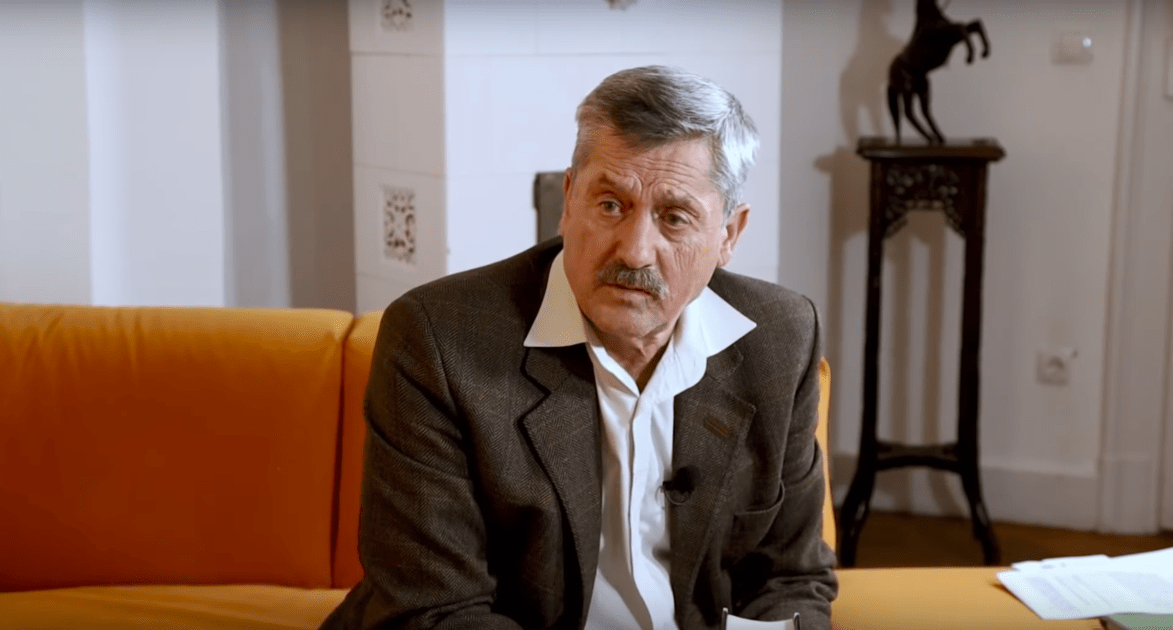De-escalation at all levels is the order of the day
| Activities - Comments |

Wolfgang Effenberger
The early morning news on February 24, 2022, about Russian attacks on Ukraine were shocking. War in Europe! Pictures of fierce air attacks, of destroyed houses, bridges and infrastructure were last seen 23 years ago, when the USA and NATO bombed the rest of Yugoslavia for days and nights on end without a UN mandate, following the escalation strategy of General John A. Warden. This doctrine, still in effect today, pursues the strategic goal of breaking an adversary's will to resist as quickly as possible. Priority attacks on vital infrastructure and population serve this purpose. This turns current international law, which prohibits attacking non-combatants and destroying power plants, refineries, bridges and hospitals, on its head. NATO's inhumane use of 30 tons of uranium munitions at the time permanently poisoned the living environment. And the attack on the Chinese embassy in Belgrade gave Beijing the message to stay away from Europe.
While NATO bombed the broadcasting facilities of Serbian television and the industrial center of Nis, the representatives of the member states met in Washington on April 23 on the occasion of the 50th anniversary of the founding of NATO.
After three former Eastern bloc countries were admitted with media attention,(1) U.S. President Clinton presented the new NATO strategy: In it, the crisis intervention role is permanently anchored, if necessary without a UN mandate.(2)
On March 23, 1999 - just hours before the order to attack Yugoslavia - U.S. President Bill Clinton made the background to this war clear to union representatives: "If we're going to have strong economic relationships that include our ability to sell around the world, Europe has to be a key. And if we want people to share our burdens of leadership, with all the problems that are bound to come up, Europe has to be our partner. Now, that's the importance of this Kosovo story."(3)
Unambiguously, former Chancellor Helmut Schmidt stated at the end of the first week of the war: " Bullied by the U.S., we have disregarded international law and the United Nations Charter."(4) Then he looked into the future: "the mostly domestically motivated ruthlessness with which Washington enforces its current interests ... will increasingly get on the nerves of many Europeans."(5)
Only after the signing of UN Resolution 1244, which established Kosovo's affiliation with Serbia, did the bombing cease. Despite this resolution, Kosovo was unilaterally declared independent by the U.S. - where it immediately established Camp Bondsteel, the largest U.S. base in the world after 1945. The importance of this base, located in the center of Europe, is obvious. In the summer of 2001, during a visit to soldiers stationed at Camp Bondsteel, U.S. President Bush spoke clearly about U.S. imperial goals disguised as a mission of values: "We seek a world of tolerance and freedom. From Kosovo to Kashmir, from the Middle East to Northern Ireland, freedom and tolerance is the defined goal for our world. And your service sets an example of this for the entire world."(6)
At that time, however, the rest of Yugoslavia posed no threat to NATO and certainly not to the United States. Socialist Serbia, which had ties to China, was merely standing in the way of NATO's planned eastward expansion. For this geopolitical goal, the "value West" accepted a destroyed environment and nearly 2,500 deaths.
No sanctions were imposed against the USA and its allies after the war of aggression against the rest of Yugoslavia, which was illegal under international law. The now blatantly unilateral interpretation of law, treaties and here above all international law by the "values-West" is recognized, rejected and also opposed by the majority of the world's population. It makes sad that the peace commandment is trampled underfoot in order to implement imperial goals.
The coup in Ukraine orchestrated by the West in February 2014 was followed by the referendum in Crimea, in which the vast majority of the inhabitants voted for annexation to the Russian Federation. This was denied to the breakaway republics in the Donbass, Luhansk and Donetsk. A fierce civil war immediately broke out there between Ukrainian government troops and the "rebel republics." A civil war of which the Western media provided no images, and if they did, then only propaganda images from Kiev. In late February 2021, Ukrainian President Selensky, with Western blessing, drafted the decree to "de-occupy Crimea." The number of civilians killed in the Ukrainian civil war since 2014 is estimated at 9,000 by Darya Morozova, the human rights representative of the Donetsk People's Republic, some of whom she counted as civilians included members of the People's Militia. The UN's official estimate of civil war casualties is 13,000, including 5,000 civilians.(7)
At the end of January 2022, the SPD party leadership recognized that every conversation must now be held "to seek a diplomatic way out of the crisis and to prevent war."(8)
What ways out were being sought to avert war in the middle of Europe? With the concluding statement "The line of the SPD is very clear - the escalation is coming from Russia"(9) no peace signal was sent, on the contrary. At the same time, the USA and NATO forced the deployment in Eastern Europe.
When did the escalation really start? Here we would have to go back to the U.S. war plan DROPSHOT of December 19, 1949, which envisioned the destruction of the Soviet Union in 1957. The current beginning may well be in the failure of the U.S. and NATO to honor their pledge not to expand NATO eastward and the U.S. push since 2008 to admit Ukraine into NATO. Russia's claim that NATO's eastward enlargement violates Western commitments made after the fall of the Berlin Wall is now bolstered by a remarkable file discovery from the British National Archives.(10) A March 6, 1991, meeting in Bonn of the political directors of the foreign ministries of the United States, Britain, France, and Germany addressed the security issues of Eastern European states.
Bonn's representative, Jürgen Chrobog, stated at the time, according to the memo, "We made it clear in the Two Plus Four negotiations that we would not extend NATO beyond the Elbe. We therefore cannot offer NATO membership to Poland and the others."
The British, French and Americans also rejected NATO membership for the Eastern Europeans. U.S. Representative Raymond Seitz said, "We have made it clear to the Soviet Union - at Two Plus Four as well as other talks - that we will not take advantage of Soviet troop withdrawals from Eastern Europe."(11) However, under Prague-born U.S. Secretary of State Madeleine Albright, NATO policy change was successfully initiated beginning in 1997. To date, 14 primarily Eastern European countries have joined NATO.(12)
The fact that Barack Obama referred to Russia as a "regional power" in 2009 can be seen as a veritable (and presumably deliberate) slight. Starting in 2013, Ukraine was then removed from Russia's economic zone with U.S. and EU support. When Ukrainian President Yanukovych refused to be the first to sign the political-military part of the EU Association Agreement, the Western-orchestrated coup occurred. While Yanukovych's Western-oriented successor, the oligarch Poroshenko, brought Ukraine closer to the EU, the eastern Ukrainian regions of Donetsk and Lugansk wanted to keep their ties to Russia and detached their territories from Ukraine. From 2014 to the present, more than 20 unsuccessful cease-fire agreements have been reached between the Ukrainian central government and separatists. With the Minsk Agreement of 12 Feb 2015 ( Minsk II ), RU, UKR, France and Germany concluded an agreement on de-escalation, also a law on the special status of Donetsk and Lugansk was to be adopted. In January 2018, when Kyiv issued a reintegration law for Lugansk and Donetsk, the then-president of the self-proclaimed and internationally unrecognized Donetsk People's Republic, Alexander Zakharchenko, declared it irrelevant. Since then, the West has done nothing to find a mutually acceptable solution. Given the history of developments since 1990, this should have been possible: in 1990 and thereafter, the Soviet Union withdrew its troops from all non-Soviet states, and in 1999, during the Kosovo war, Poland, Hungary and the Czech Republic became the first former Eastern bloc countries to join NATO. In 2001 and thereafter, Putin made three speeches suggesting a free trade area between the EU and Russia and greater economic ties between Germany and Russia:
"In 2001 in a Reichstag speech delivered in German in Berlin. In 2007 at the Munich Security Conference and in 2010 at an economic forum in Berlin. In 2007, Putin declared at the Munich Security Conference that further NATO expansion eastward into the former territory of the Soviet Union would mean "crossing a red line."(13) After the coup in Kiev, the Kremlin had to reckon not only with an economic but also with a strong U.S. military component in Ukraine that was perceived as threatening to Russia.
In view of the sanctions now threatened and introduced by Germany, the EU and the U.S., Russia will further expand its strategic partnership with China. The U.S. wants to secure its hegemonic power and bind Europe more closely to it. It is only against this background that the economic war over the Nord Stream II gas pipeline, the U.S. economic infiltration in Ukraine and the attempts to integrate Georgia and Ukraine since 2008 are to be understood.
In the process, the U.S. uses its economic levers - boycotts, embargoes, punitive tariffs, foreign asset freezes - to coerce NATO members into allegiance when necessary.(14)
At the end of the third day of the war, actionable and verifiable information is scant. Things are relatively quiet, which does not necessarily bode well.
Russia's troop strength on the border with Ukraine, as determined by the West before the war began, was less than 200,000, a size not necessarily suitable for occupying Europe's second largest territorial country. Perhaps Russian President Vladimir Putin will make good on what he announced in an address to the Russian people as a "special operation" in the Donbass aimed at "protecting the people who have been mistreated and oppressed by the Kiev government for eight years." To achieve this, Putin says Russia will seek to "demilitarize and denazify" Ukraine. To achieve this goal by means of "punitive action," it is not necessary to occupy all of Ukraine.(15)
Having invested five billion U.S. dollars in Ukraine regime change in 2014, the U.S. now wants to see dividends. Should Putin make good on his plan in Ukraine, and should the U.S. for its part continue to pursue its unipolar policy, an almost unimaginable catastrophe could be in the offing. To exacerbate the situation at such a heated stage - Russia's suspension from the Council of Europe, exclusion from the SWIFT agreement - could push the conflict to the brink of a major war. The situation in February 2022 is quite similar to that in August/September 1939, when Poland was encouraged by Britain to torpedo negotiations with Germany. In the war that immediately followed, GB declared war on Germany but did nothing. Before the war in Ukraine, the U.S. and Britain gave Ukraine a free hand in acting against the breakaway republics. Now the war is here, and both countries let Ukraine fight alone.
The EU is now financing arms deliveries to Ukraine with half a billion euros, and Germany is also sending heavy weapons to the crisis area - so the NATO alliance case does not seem far away.
The developments before World War I and World War II were quite similar. Local conflicts were enough to ignite a major conflagration.
Such strategies were already known to Macchiavelli (1469-1527), who warned: " Not he who first takes up arms is the instigator of disaster, but he who compels it."
In order to have a future worth living at all, however, we need today more than ever a policy aimed at eliminating the causes of conflict worldwide.(16) The prerequisite for this is a multipolar peace order in which slights, intrigues and secret agreements have no place. This then also includes a media landscape in which freedom of opinion and freedom of the press are respected and restricted only by the criminal code.
Notes
1) "Man rechnete in Washington für die nächsten 15 Jahre mit gewaltigen militärischen Investitionen der drei neuen Nato-Mitgliedsstaaten: 60 bis über 100 Milliarden US-Dollar." - Helmut SCHMIDT in der ZEIT v. 22.4.99
2) In einer feierlicher Sitzung zum 50. Jahrestag der Gründung der NATO unterzeichneten am 28. April 1999 die Staats- und Regierungschefs der NATO-Länder das »Neue Strategische Konzept« der NATO.
3) President Bill Clinton vor der US-Gewerkschaft “American Federation of State, County and Municipal Em-
ployees” (AFSCME): Remarks to AFSCME Biennial Convention, Washington, D.C., 23 March 1999;
http://clinton4.nara.gov/textonly/WH/New/html/19990323-1110.html
4) Altbundeskanzler Helmut SCHMIDT in der Frankfurter Rundschau vom 3./4. April 1999
5) Altbundeskanzler Helmut SCHMIDT in der ZEIT v. 22.4.99
6) US-Präsident George am 24. Juli 2001 im Camp Bondsteel, unter http://www.whitehouse.gov/news/releases/2001/07/20010724-1.html vom 23. Juli 2008
7) https://de.rt.com/europa/129217-krieg-im-donbass-donezker-und-lugansker-volksrepubliken-melden-fast-hundert-tote-jahr-2021/
8) https://www.welt.de/politik/deutschland/article236579961/Klingbeil-zur-Ukraine-Krise-Die-Eskalation-geht-von-Russland-aus.html
9) https://www.welt.de/politik/deutschland/article236579961/Klingbeil-zur-Ukraine-Krise-Die-Eskalation-geht-von-Russland-aus.html
10) https://www.spiegel.de/ausland/nato-osterweiterung-aktenfund-stuetzt-russische-version-a-1613d467-bd72-4f02-8e16-2cd6d3285295
11) https://www.welt.de/politik/ausland/article236986765/Nato-Osterweiterung-Archivfund-bestaetigt-Sicht-der-Russen.html?source=puerto-reco-2_ABC-V1.B_click_prob_only
12) 1999 wurden Polen, Tschechien und Ungarn aufgenommen, 2004 Bulgarien, Estland, Lettland, Litauen, Rumänien, Slowakei und Slowenien. Albanien und Kroatien kamen 2009 hinzu, 2017 Montenegro und 2020 schließlich Nordmazedonien
13) Aufzeichnung von General a.D. Schulze-Rhonhof vom 14.Februar 2022 (privat)
14) Ebd.
15) https://bachheimer.com/6af1bsimonb1ac-p-2780698
16) Siehe auch Wolfgang Effenberger: Rede anlässlich des Friedensfestivals am 25. Juli 2009 vor dem Brandenburger Tor „Neue Kriege um Rohstoffe“
http://www.nrhz.de/flyer/media/14075/Berlin-Rede-Effenberger-23-07-09.pdf
| < Prev | Next > |
|---|
| Overstatement from Davos 2017. |
Liberal corporative capitalism, for reasons of lowering traveling costs, proposed not to travel to history alone but packed togather with NATO, EU and unipollar World Order. Workers participation has good chances to step in provisionally, buying time for full scale workers selfmanagment. |









